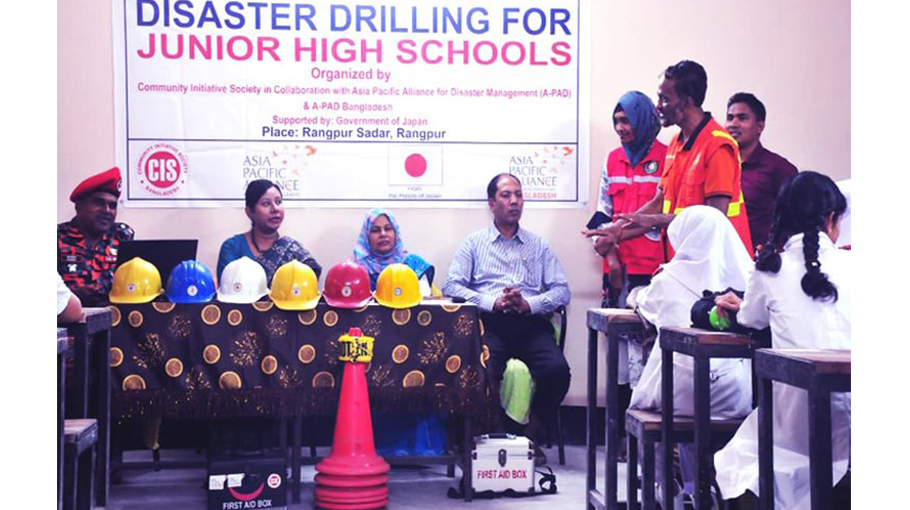Boosting school-based disaster management stressed

Institutionalisation of school-based disaster management and early preparedness can reduce risks of natural disasters, losses of lives and properties in the educational institutions as well as local communities.
The observation came today at the concluding function of a two-day training workshop for students titled 'Disaster Drilling for Junior High Schools' held at Rangpur Lions School and College auditorium in the city.
The Community Initiative Society (CIS) in collaboration with Asia Pacific Alliance for Disaster Management (A-PAD) and A-PAD Bangladesh organised the event supported by the Government of Japan.
Rangpur Sadar Upazila Nirbahi Officer Nur Nahar Begum attended the event as the chief guest with Vice-principal of the institution Md. Ukil Uddin in the chair.
Principal of Rangpur Lions School and College Md. Raihan Sharif and Urban Community Volunteers Team Leader of CIS Golam Sajjad Haider addressed the event.
Volunteers of Rangpur Unit of Bangladesh Red Crescent Society, students and teachers of Rangpur Lions School and College participated in the program.
Mock drills on managing natural disasters like earthquakes and fires were organized on the premises of the institution.
Senior Station Officer of Rangpur Fire Service and Civil Defense Station Md. Badsha Masuud conducted practical training of the participants on their roles during natural disasters like earthquakes and fire incidents and primary aids.
"The present government has been working to ensure efficient emergency response management systems, training, education, disseminating information and warnings to reduce risks of natural disasters," he said.
Golam Sajjad Haider narrated various forms of natural disasters and calamities, including earthquake, and suggested the way-outs and early preparedness for reducing disaster risks in the educational institutions, community levels and disaster-prone areas.
He also discussed the importance of school-based early preparedness and disaster management activities.
The chief guest stressed on coordinated efforts of GO-NGOs, teachers, volunteers, community leaders and public representatives in disseminating knowledge among the students, youths and common people to reduce losses during natural disasters.
"The losses of human lives and properties could be reduced substantially through providing training on basic first aid and disaster preparedness to common people, volunteers, students and youths to enable them to assist the victims timely on the spot," she added.




